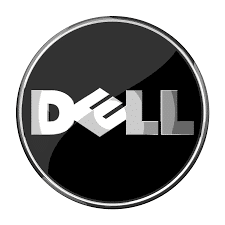(Bloomberg) – Michael Dell’s proposed acquisition of EMC Corp. is an old-fashioned argument for bulking up, taking two ailing companies and betting they’ll be stronger under one roof. And yet the prevailing trend is to do the exact opposite. Both Hewlett-Packard Co. and EBay Inc. are splitting in two and focusing on fewer businesses.
Dell is zigging while the rest of the industry is zagging.
News that the PC maker is in talks to combine with EMC conjures up memories of past tech mega-mergers that didn’t fare so well. Exhibits A & B: Compaq-HP and AOL-Time Warner. Both those deals failed to deliver the promised synergies and economies of scale. Now, with competition becoming fiercer and disruptions arriving faster and faster, many tech companies have come to prize agility over size.
A Dell-EMC merger is “really going the opposite way of HP,” said Abhey Lamba, an analyst at Mizuho Securities USA Inc. “When you have so many different businesses it’s hard to balance competing priorities. It’s hard to stay focused and innovate.”
The proposed combination would be the biggest technology deal ever, according to people familiar with the negotiations, who said privately held Dell is lining up at least $40 billion in financing. The deal would eclipse the pending $37 billion Broadcom-Avago merger, currently the largest-ever pure-tech tie-up.
– – –
Though Dell and EMC have done business together for years and have complementary cultures, their sheer size makes integration a formidable challenge, said Jeffrey Fidacaro, an analyst at Monness Crespi Hardt & Co. A merger could make them less nimble, he said, because loading up on debt means “you’re financially constrained.” Larger enterprises can also add bureaucracy, slowing decisions and making it harder to get products out the door quickly.
The need for flexibility is precisely why HP will split into two companies next month – one offering technology and services to businesses, and another selling PCs, printers and other gadgets to consumers. The tech giant faces fleet-footed new rivals and is late to the shift to cloud-based computing.
Google Inc., meanwhile, reorganized into a holding company called Alphabet Inc., freeing ambitious new endeavors such as the Google X research lab from the bread-and-butter search and advertising businesses. For much the same reason, EBay split off PayPal, and Symantec Corp. is selling its data-management unit – in both cases these were businesses acquired years earlier to bolster the companies’ offerings.
– – –
A Dell-EMC combination does offer some potential benefits. Taking EMC private means the company could invest in new businesses and rejigger its aging ones without the scrutiny and pressure from Wall Street, said one of people familiar with the companies’ thinking. The deal also would give Dell control of VMware, whose software is widely used to manage data centers.
And there is an argument for putting servers and storage together. Corporate customers increasingly prefer one-stop shopping so companies from Cisco Systems Inc. to upstart Nutanix Inc. are combining different kinds of hardware into one package, merging things like servers with storage and networking gear. Even after its split, HP’s storage and server businesses will stay together.
“It’s not about getting bigger,” said Brian Alexander, an analyst at Raymond James & Associates Inc. “It’s about getting stronger.”
The question for Dell and EMC is whether those benefits outweigh the drawbacks of becoming a behemoth at a time when nimbleness is the key to prosperity – if not survival.






